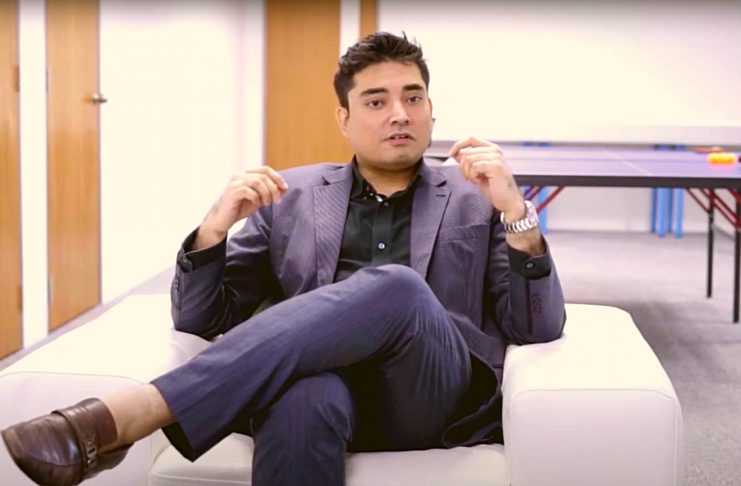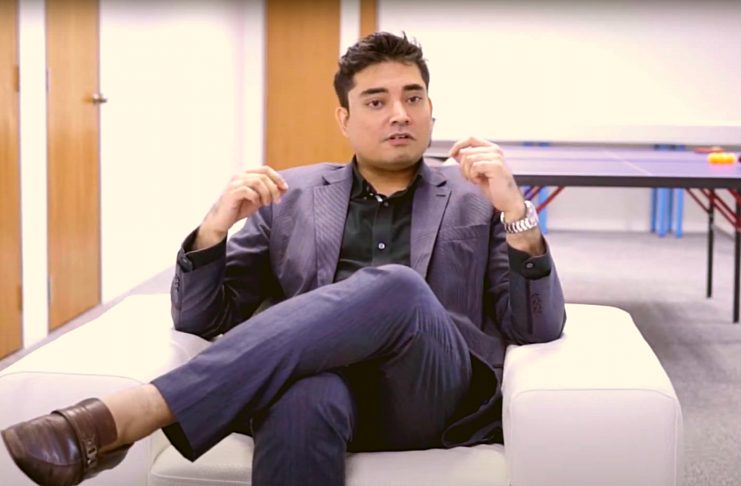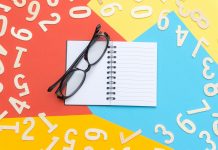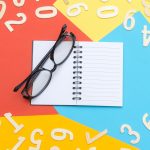Sancy Suraj: The Memory Mastermind Behind Singapore’s Fastest Flag Recognition Time
Sancy Suraj, the Singaporean memory athlete, has made headlines for his impressive feats of memory, including breaking multiple national records for memorizing pi digits, national flags, and even Euler’s number. As the current Singapore record holder for reciting the most pi digits (1,505), and now the fastest time to identify all national flags, Sancy Suraj has quickly established himself as a leading figure in the world of memory sports. In this article, we will dive deeper into the mind of Sancy Suraj and explore how he developed his remarkable memory skills, his preparation and training routines leading up to his latest records, his future plans, and the practical applications of his memory techniques in daily life.
Can you tell us more about how you developed your memory skills and what motivated you to become a memory athlete?

Certainly, I would be glad to answer your question. As a memory athlete, I have always been fascinated by the human brain’s capacity to retain vast amounts of information. My interest in memory techniques began when I was a teenager, and I started experimenting with various methods to improve my memory skills.
One of the key techniques I use is the memory palace method, which involves associating information with familiar locations. For example, if I need to remember a list of words or numbers, I would imagine myself walking through a familiar location, such as my house, and placing each item in a specific location. This technique helps me to quickly recall the information by mentally retracing my steps through the memory palace.
In addition to memory palaces, I also use other techniques such as visualization, association, and repetition. For example, I might associate a particular number with a color or shape, or visualize a person’s name as an object. These techniques help to make the information more memorable and easier to recall.
My motivation to become a memory athlete came from a desire to push my limits and see how far I could go. I enjoy the challenge of memorizing large amounts of information and setting new records. It is also gratifying to know that my skills can be applied to practical tasks, such as learning new languages, studying for exams, or remembering important dates and appointments.
Overall, developing my memory skills has been a journey of exploration and experimentation. I am constantly seeking new methods and techniques to improve my abilities, and I find the process both challenging and rewarding. I hope that my achievements can inspire others to explore the limits of their own memory capacity and discover the joy of mastering this amazing skill.
Breaking two Singapore memory records in a single day is quite an accomplishment. Can you walk us through your preparation and training routine leading up to the flag identification and Euler’s number challenges?
Absolutely, I would be happy to share my preparation and training routine leading up to the day I broke two Singapore memory records. The road to achieving such a feat required a lot of dedication and hard work, and I am happy to share some insights.
To prepare for the flag identification challenge, I spent weeks practicing with flashcards, online quizzes, and other resources to familiarize myself with the national flags of all the countries in the world. I used various memory techniques, such as the memory palace method, to associate each flag with its corresponding country name. I also practiced typing the country names as quickly and accurately as possible.
Leading up to the Euler’s number challenge, I spent several hours each day memorizing sequences of digits using different memory techniques. I used visualization techniques, such as associating each digit with a familiar object or image, and repetition to improve my recall speed. I also focused on mental discipline, meditation, and relaxation techniques to help me maintain focus and avoid distractions.
On the day of the challenge, I made sure to get enough sleep and eat a healthy breakfast to ensure my body and mind were in optimal condition. I visualized my memory palaces and reviewed my strategies for both challenges. I also used breathing techniques to manage my nerves and remain calm and focused.
During the challenge, I maintained a steady pace, and I avoided rushing or getting flustered. I used mental visualization techniques to quickly recall the information I needed and focused on staying calm and composed throughout.
In summary, my preparation and training routine leading up to breaking two Singapore memory records involved a lot of practice, focus, and dedication. I used various memory techniques, mental discipline, and visualization techniques to improve my recall speed and accuracy. Additionally, I made sure to take care of my body and mind on the day of the challenge and remained calm and composed throughout the entire process.
You currently hold six memory records in Singapore. Are there any other memory challenges or competitions you are preparing for in the near future?
Yes, as a memory athlete, I am always looking for new challenges to push my limits and test my skills. While I am proud of the six memory records I currently hold in Singapore, I am constantly seeking new opportunities to compete and showcase my abilities.
At the moment, I am training for the World Memory Championships, which is the premier event in the world of competitive memory sports. This competition attracts the best memory athletes from around the world and involves a wide range of memory challenges, including memorizing random numbers, playing cards, and abstract images, as well as names and faces.
In addition to the World Memory Championships, I am also exploring other memory competitions and challenges both in Singapore and abroad. These include online memory competitions, national and international memory championships, and other memory-related events and challenges.
Beyond competitions, I am also interested in applying my memory skills to practical tasks and real-world scenarios. For example, I have worked with students and professionals to help them improve their memory skills and retention of important information, and I am constantly looking for new ways to use my memory abilities to make a positive impact.
Overall, I am excited about the future and the many opportunities to test my memory skills and take on new challenges. Whether it is competing in memory championships, helping others to improve their memory skills, or exploring new ways to apply my abilities in everyday life, I am committed to continuing to develop my memory skills and pushing the boundaries of what is possible.
“Champions are not only defined by the records they hold, but by the challenges they seek to conquer. As a memory athlete, I strive to push my limits and find new opportunities to showcase my skills, whether it’s in competitions or practical tasks that make a positive impact. The true test of a champion is not in their victories alone, but in their constant pursuit of growth and excellence.”
In addition to memory competitions, do you find that your memory skills have practical applications in your daily life? If so, can you give us some examples?
Absolutely. As a memory athlete, I find that my memory skills have many practical applications in my daily life, beyond just memory competitions. In fact, I believe that developing strong memory skills can be a valuable asset in many areas of life, including education, work, and personal development.
One practical application of my memory skills is in my studies. As a student, I have found that my ability to memorize and retain large amounts of information has helped me to excel in my coursework. Whether it is memorizing formulas, key terms, or historical events, having strong memory skills has allowed me to study more efficiently and effectively, and to perform better on exams and assignments.
In addition to my studies, my memory skills have also been useful in my work as a memory coach and consultant. I work with students, professionals, and individuals of all ages to help them improve their memory skills and achieve their goals. Whether it is helping students to memorize vocabulary words, teaching professionals to remember names and faces, or coaching individuals on how to develop stronger overall memory skills, my memory abilities have allowed me to make a real difference in people’s lives.
Finally, I have found that my memory skills have practical applications in my personal life as well. For example, I use memory techniques to remember important dates and events, such as birthdays and anniversaries, and to keep track of my schedule and appointments. I also use memory techniques to help me learn new skills and hobbies, such as languages, music, and cooking.
Overall, I believe that developing strong memory skills can be a valuable asset in many areas of life, and can help individuals to achieve their goals, perform better in their studies and work, and lead more fulfilling and productive lives.
The Euler’s number challenge involves recalling over a thousand digits. How do you manage to keep track of such a large amount of information and avoid making mistakes?
The Euler’s number challenge, like many memory challenges, requires a combination of memorization techniques and mental strategies to manage such a large amount of information and avoid making mistakes. To begin with, I use a memory palace or memory journey technique to help me organize and visualize the digits in a memorable way. I assign a specific image to each sequence of digits and then mentally place those images along a familiar route or location in my mind, such as a childhood home or a familiar city street. This allows me to “walk through” the memory palace in my mind and recall the digits in the correct order.
In addition to the memory palace technique, I also use a number of mental strategies to help me keep track of the digits and avoid mistakes. For example, I might use a rhythm or melody to help me remember the sequence of digits, or I might create a story or association between the digits and a particular person or object. These mental strategies help me to create a more vivid and memorable mental image of the digits, which makes it easier to recall them accurately.
Finally, I practice and rehearse the challenge multiple times, using feedback from each attempt to refine my strategy and improve my accuracy. This allows me to identify any areas where I am making mistakes or struggling to recall the digits, and to adjust my approach accordingly.
Overall, the key to managing such a large amount of information and avoiding mistakes is to use a combination of memorization techniques and mental strategies, and to practice and rehearse the challenge multiple times to refine and improve your approach. With dedication, focus, and a well-developed memory system, it is possible to master even the most challenging memory tasks.
“The human mind is capable of incredible feats, but it is our ability to combine memorization techniques and mental strategies that unlocks its full potential. By creating vivid mental images and associations, and practicing our memory skills with dedication and focus, we can achieve greatness in even the most challenging tasks, such as recalling over a thousand digits of Euler’s number.”
When asked about his memory development and motivation, Sancy Suraj credits his love for mathematics and science as the driving force behind his interest in memory sports. He recalls spending countless hours memorizing mathematical formulas and equations, and eventually expanding his memory skills to other areas such as history, geography, and even language. To prepare for his latest records in flag identification and Euler’s number recall, Sancy Suraj follows a strict training routine that involves daily practice sessions and a focus on mental discipline and visualization techniques.
Despite already holding six memory records in Singapore, Sancy Suraj shows no signs of slowing down and is always looking for new challenges to push his memory skills to the limit. When asked about his future plans, he mentions his interest in participating in international memory competitions and setting new world records. However, he also recognizes the importance of balance and prioritizes his academic and personal pursuits alongside his memory training.
One of the most impressive aspects of Sancy Suraj’s memory skills is their practical applications in daily life. He cites examples such as remembering important dates and appointments, learning new skills and information faster, and even improving his communication skills through the use of mnemonics and visualization techniques. By prioritizing his mental and physical well-being and cultivating a curious and engaged mindset, Sancy Suraj has developed not only impressive memory skills but also a well-rounded and fulfilling life.
What advice would you give to someone looking to improve their memory and develop their own memory techniques?

My first piece of advice for someone looking to improve their memory is to develop a consistent and focused practice routine. This might involve setting aside dedicated time each day to practice memory exercises or techniques, or integrating memory training into your daily activities and routines. The key is to be consistent and deliberate in your practice, and to approach it with a growth mindset that emphasizes progress and improvement over perfection.
Another important aspect of memory improvement is to experiment with different memory techniques and strategies to find what works best for you. There are many different memory techniques out there, from the memory palace technique to mnemonics and visualizations, and each person may find that different techniques work better for them. It’s important to be open-minded and willing to try different approaches, and to be patient and persistent in your efforts to develop your memory skills.
In addition to practicing memory techniques, it’s also important to pay attention to your overall health and well-being. This includes getting enough sleep, eating a healthy and balanced diet, exercising regularly, and managing stress levels. All of these factors can have a significant impact on your memory and cognitive abilities, so it’s important to prioritize them as part of your overall memory improvement strategy.
Finally, I would encourage anyone looking to improve their memory to stay curious and engaged with the world around them. Memory is fundamentally about making connections and associations between different pieces of information, and the more diverse and interesting your experiences and knowledge base, the more material you have to work with when developing your memory skills. Whether it’s exploring new hobbies and interests, learning a new language, or simply being more mindful and present in your daily life, there are many ways to cultivate a rich and engaging environment that supports memory growth and development.
“Memory improvement is not a one-size-fits-all journey. It requires a consistent and deliberate practice routine, experimentation with different techniques, and a holistic approach to health and well-being. Ultimately, memory improvement is about making meaningful connections and associations, so stay curious, engaged, and open-minded in your pursuit of a better memory.”
Sancy Suraj’s incredible memory feats and dedication to his craft have made him a true mastermind of memory sports. Through his rigorous training routines and innovative memory techniques, he has pushed the boundaries of what is possible and inspired others to develop their own memory skills. As he continues to pursue new challenges and set new records, Sancy Suraj serves as a shining example of the power of practice, dedication, and curiosity in unlocking our full potential.














